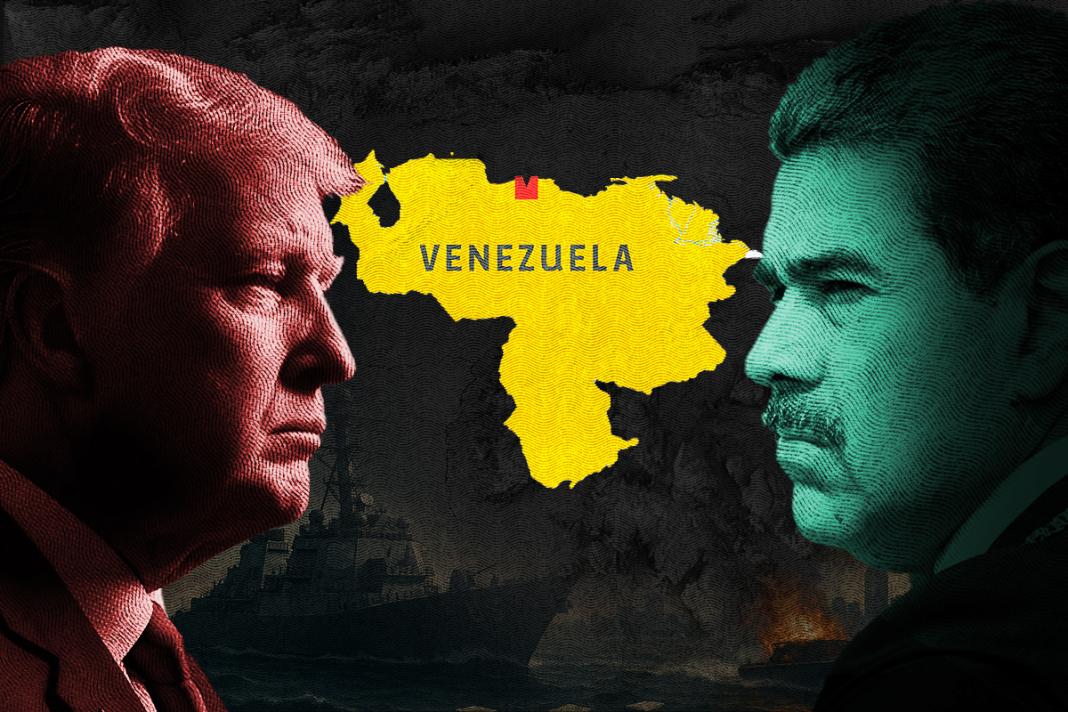Has the U.S. War on Drugs Turned into a Military Conflict with Venezuela?

Design: Mohammod Tashin, Copyright: Nebula Research Society
The United States administration informed Congress on October 6, 2025 that the U.S. is in a formal armed conflict against drug cartels which it has labeled as unlawful armed combatants. The United States initiated a military campaign against Venezuelan drug trafficking in September, claiming cocaine smuggling by the “narco-terrorists” poses an imminent threat to the United States. However, legal experts have cautioned that there is no clear authority to use military force against drug traffickers and cartels, even if some are designated as foreign terrorist organizations (FTOs). The move marks a sharp departure from U.S. practice, which has traditionally relied on law enforcement tools such as interdiction.
The U.S. started enforcing their decision very soon. The U.S President Donald Trump announced on October 14, 2025 that six 'drug terrorists' were killed in an attack on another vessel suspected of carrying drugs from Venezuela towards the United States. In such operations, at least 27 people have been killed so far. The administration claims these attacks are being carried out to protect the United States from smuggled drugs. However, many experts have questioned the legality of using deadly force against suspects in foreign or international waters who have not been questioned or detained. Trump said the latest attack was carried out in international waters. He stated, “The vessel was involved in drug trafficking, was associated with an illegal terrorist network, and was traveling along a recognized terrorist route.”
The US has already deployed warships in the Caribbean region off the coast of Venezuela and has destroyed multiple speedboats since the first attack on September 2nd. This has heightened tensions with Venezuelan President Nicolás Maduro. He declared military exercises, issued a nationwide alert and claimed the US naval deployment is intended to oust him from power. Trump has said his anti-drug policy is working and that military operations could be expanded to land if necessary.
This type of conflict between the U.S. and Venezuela is not new. The conflict between Venezuela and the United States is rooted in a mix of political, economic and strategic factors. It’s not a traditional “war” but an ongoing diplomatic, economic and ideological difference that has lasted for more than two decades. Both the countries have had tense relations for many years, especially during the presidencies of Hugo Chávez and Nicolás Maduro. U.S. sanctions, non-recognition of Maduro’s government by some U.S. administrations, and accusations over human rights and democracy have formed the backdrop.
Venezuela owns the world's largest proven oil reserve, which makes it the most influential player in global power politics. The United States, which was once the main buyer of Venezuela's oil, now had to reduce it when tensions grew more between the two countries. Venezuela's control over oil reserves directly affects global energy prices and power balance. It naturally excites the competition between the countries.
Geo-strategic locations of the two countries play an important role behind this conflict. Venezuela stands at the junction between the Caribbean and the South American mainland. Venezuela’s geo-strategic location facilitates it with - energy leverage, access to global sea lanes, proximity to U.S. territory, and potential as a power projection hub for anti-U.S. states.
The geo-strategic location of the United States gives it - global accessibility, maritime superiority, defensive security, and strategic influence across hemispheres. Its position between two major oceans, its territorial possessions and global network of allies make it the most geographically advantaged power and capable of shaping both regional and international politics. Venezuela is only about 1,200 miles from Florida, USA ; which is very close for strategic monitoring.
Since Hugo Chávez took over the power of Venezuela(1999), the country has followed a socialist and anti-U.S. ideology. On the other hand, the United States opposes it with democracy and capitalism instead. The clash of ideologies led to repeated political and diplomatic conflict. Venezuela increased good relations with U.S. rival countries like Russia,China and Iran who helped the country with economic aid, military cooperation and political backIng to counter the U.S. This also became a growing threat for America. Venezuela’s prolonged economic collapse has led to a severe humanitarian and migration crisis. Millions of citizens have fled to neighboring countries seeking food, jobs, and safety. The United States condemns Maduro’s leadership for mismanagement and repression, using these humanitarian concerns to justify diplomatic pressure and interventionist policies.
In 2025, the U.S. under President Trump has shifted from just sanctions and diplomatic pressure to more assertive military measures. The U.S. increasingly frames certain Venezuelan-linked criminal or paramilitary entities (especially the gang Tren de Aragua) as “narco-terrorist” organizations. The U.S. has designated some of these groups as Foreign Terrorist Organizations (FTOs).
The conflict between Venezuela and the U.S. is way more than a simple political disagreement. It reflects struggle over power, ideology, economy and influence in the Western Hemisphere. A dispute starting over governance and oil issue has evolved into a complex confrontation involving global powers like Russia and China. While both nations defend their strategic and ideological interests, the real cost is borne by the Venezuelan people, who continue to suffer from economic instability and political repression. The future of this conflict will depend on whether dialogue and diplomacy can prevail over sanctions and rivalry in shaping a stable regional order.
